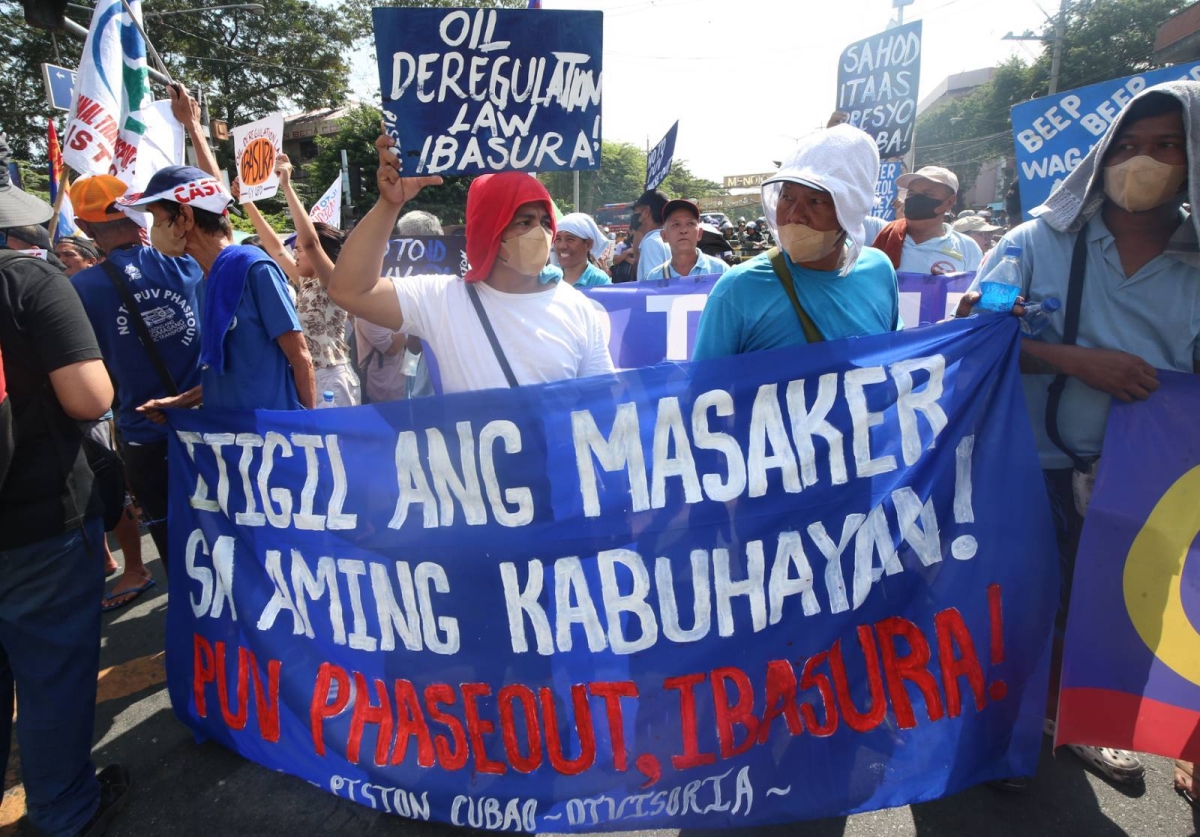Manila, Philippines: Transport groups in the Philippines are set to stage a two-day nationwide strike this week in protest of the December 31 deadline for franchise consolidation. The Pagkakaisa ng mga Samahan ng Tsuper at Opereytor Nationwide (Piston) announced on Monday that the strike will take place from December 14 to 15.
This strike will involve transport groups from Central Luzon and Southern Tagalog, who are joining forces to voice their concerns. The issue at hand revolves around the requirement for drivers and operators of traditional jeepneys and UV Express units to consolidate into cooperatives or corporations before the deadline. Failure to comply with this directive will result in the cessation of their operations under the Public Utility Vehicle Modernization Program.
Piston, alongside other transport groups, has been advocating for the postponement of the deadline, arguing that hundreds of drivers and operators will lose their livelihoods if the consolidation process is rushed. This strike follows a similar protest held by jeepney drivers last November, which aimed to oppose the planned phaseout of old jeepneys.
The transportation landscape in the Philippines is undergoing significant changes as the government pushes for modernization. The Public Utility Vehicle Modernization Program aims to upgrade the country’s public transportation system, enhance passenger safety, and reduce pollution. However, the transition has faced criticism and resistance from various stakeholders.
Jeepneys, iconic symbols of Philippine culture and a common mode of transportation, are at the center of this controversy. These colorful and uniquely designed vehicles have been a staple in Philippine streets for decades, providing affordable transportation for many Filipinos. However, they are also known for their outdated engines and lack of safety features.
The government’s plan to phase out old jeepneys and replace them with more modern, environmentally friendly vehicles has been met with opposition from transport groups and drivers. They argue that the cost of transitioning to new vehicles is too high and will adversely affect their livelihoods.
While the government has offered financial assistance and incentives to support the transition, many drivers and operators feel that these measures are insufficient. The consolidation requirement adds another layer of complexity to the situation, as it necessitates the formation of cooperatives or corporations, potentially altering the dynamics of the industry.
Transport strikes have become a common form of protest in the Philippines, where labor groups and transport organizations use collective action to express their grievances. These strikes disrupt daily commutes and put pressure on the government to address the concerns of the transport sector.
As the strike takes place, it is important to consider the impact on the general public. Commuters may face difficulties in reaching their destinations, and businesses relying on transportation services may experience disruptions. However, it is equally important to recognize the grievances of the transport groups and their desire for a fair and sustainable transition.
It remains to be seen how the government will respond to the strike and whether any adjustments will be made to the consolidation deadline. Balancing the need for modernization with the welfare of the transport sector will be crucial in ensuring a smooth transition that benefits all parties involved.
In conclusion, the upcoming nationwide transport strike in the Philippines highlights the ongoing tensions surrounding the franchise consolidation deadline for traditional jeepney and UV Express units. The strike serves as a platform for transport groups to voice their concerns and advocate for a more inclusive and sustainable approach to the public transportation modernization program.







